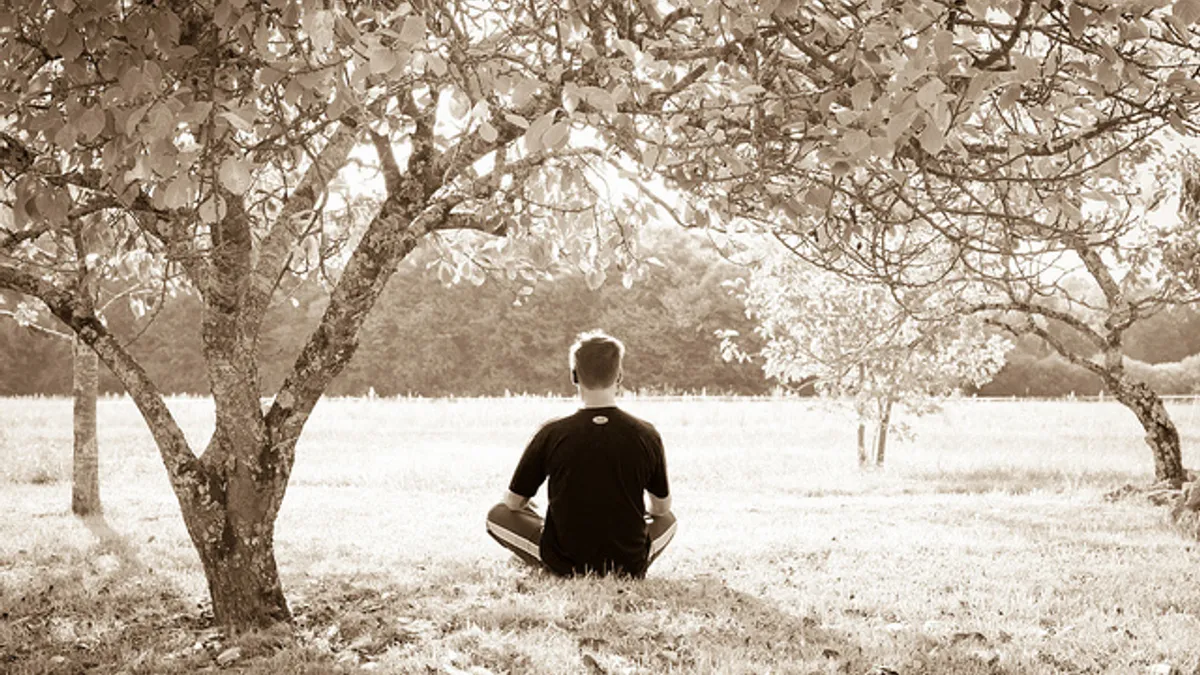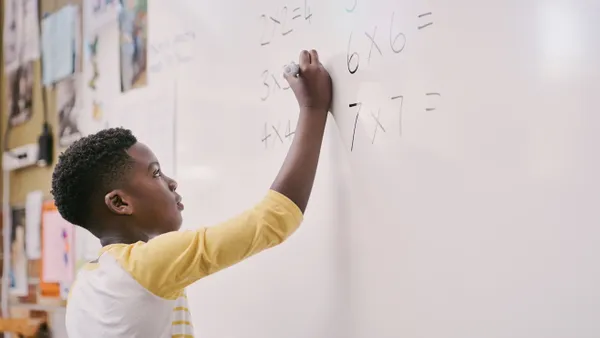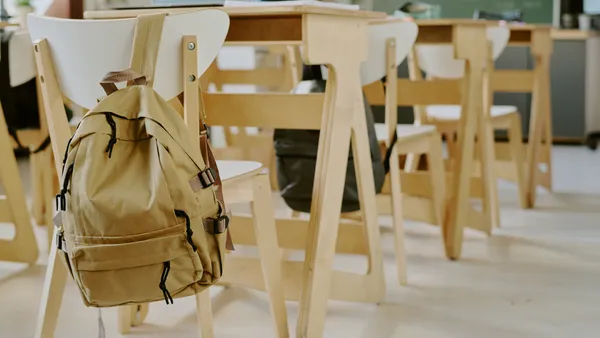Dive Brief:
- More schools are introducing mindfulness into curricula to help students deal with the stress brought on by pandemic-induced lifestyle changes, according to The Hechinger Report. While some schools can afford to hire full-time mindfulness educators, others are integrating discussions about emotions into daily lessons.
- According to a recent survey, 50% of students report worsening mental health since the beginning of the pandemic, and 35% say their family relationships are worse than before and they now feel more anxious and lonely. Another survey of 6th-graders shows students felt less stressed and had fewer feelings of sadness and anger after eight weeks of guided mindfulness.
- Digital programs can be an affordable way to bring mindfulness approaches into schools, and some include customizable settings, experts say. Distance learning also provides an ideal opportunity to introduce the practice, as some students feel more comfortable doing mindfulness exercises at home.
Dive Insight:
Some districts sought social-emotional learning curricula as early as April when it became apparent the stress of social isolation and lifestyle changes was taking a toll on families. The sudden shift to distance learning provided an opportunity for teachers to focus on emotional management, problem-solving and relationship building skills. Teachers encouraged students to spend time with their families, connect with friends over the phone and learn new skills.
“The name of the game, and one of the traits we could help our children develop this year, is flexibility and adaptability,” Linda Darling-Hammond, president of the California State Board of Education, told Education Dive.
Yet coronavirus business and school closures aren’t the only problems facing students this year. Civil unrest initially triggered by the police-involved deaths of George Floyd and other Black Americans, along with wildfires in the Western states and the unexpected loss of loved ones due to COVID-19, all contribute to increasing stress for students.
Faced with multiple crises, the role of schools is evolving and taking on new meaning. Some stakeholders suggest learning could become more project-based, rather than remaining in its current one-size-fits-all model. Such models could further lend themselves to teaching perseverance, critical thinking, self-advocacy, kindness and service skills.
Deborah Schussler, an associate professor of education at Penn State University, is also planning to gather 25 researchers, community members and educators for a conference on mindfulness. Schussler — who has helped implement mindfulness-based interventions for both K-12 students and educators — will work with the group to address ways to assess and measure the effectiveness, impact and quality of current mindfulness programs in the classroom.












